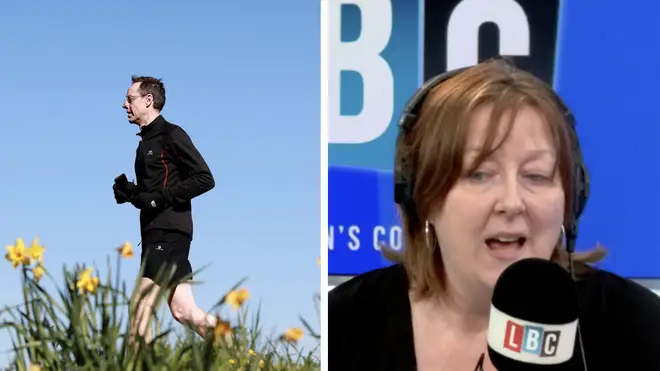
Ben Kentish 7am - 10am
27 July 2020, 14:53

Doctor explains shocking effects of "eating one more biscuit a day"
Tory MP Dr Luke Evans explains the shocking effects eating one more biscuit a day can have on the body, telling LBC he is "absolutely" thrilled about the Prime Minister's anti-obesity drive.
The prime minister's "Better Health" campaign will seek to tackle the UK's growing obesity epidemic after government data showed that almost two-thirds of UK adults are above a healthy weight.
More than a third (36%) of the country are considered overweight and 28% are deemed obese, while one-third of children aged between 10 and 11 are overweight or obese, according to the Department of Health.
Measures will include banning on unhealthy food TV adverts before 9pm, ending "buy one get one free" offers on unhealthy food and putting calories on menus for restaurants with over 250 employees.
Meanwhile, Public Health England published a study on Saturday which revealed that being classed as medically obese increased someone's risk of death from Covid-19 by 40 per cent.
Explained: Boris Johnson's national plan for tackling obesity
Tory MP for Bosworth and member of the Health Select Committee Dr Luke Evans called the move "absolutely" music to his ears as obesity is one of the biggest problems "across the world."
Dr Luke said the important element of this weight loss drive is to make people aware of the food choices they make and how choices can accumulate over time, "If you took a biscuit extra a day, about 90 calories, for a year, you'd end up putting on a stone over that year.

"Now how many times do we go I'll just have that biscuit or I'll just have that piece of chocolate?"
While he conceded it depends what one does in their day, he wants people to be empowered and make a better informed choice - he said advertising the amount of calories on a menu, for example, could nudge people in the right direction.
Shelagh countered that while personal choice is highly important, some people may find themselves in situations where they are unable to make the healthiest lifestyle choice, such as in particularly poor areas where health facilities and health shops may not be available.
The MP agreed and said it is important the anti-obesity drive is accessible for all parts of the population - this could take the form of healthier school meals, better transport infrastructure to encourage cycling and walking, and having GPs explain dietary choices.
He said there is not one "magic pill" to solve obesity but lots of little factors could do so.
Dr Luke also told Shelagh that the amount of physical activity in schools should be looked at, "When you look at the data you see the fitter people in our society are getting fitter and actually the fatter people are getting fatter.
"Any way to educate people to do more sport is a good thing from my point of view."